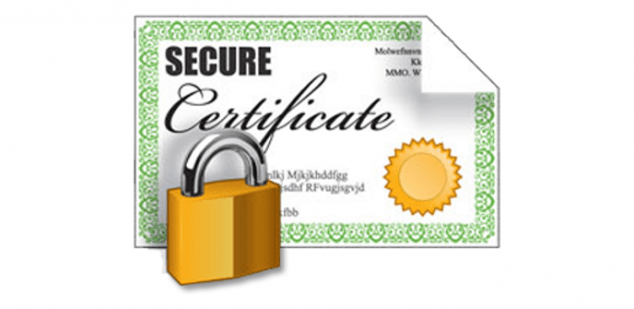The Importance of Digital Signatures: A Global Perspective with a Focus on Bangladesh
As
digital transformation reshapes economies and societies, the importance of
secure, authentic, and efficient methods for verifying digital transactions has
become paramount. Among these, digital signatures stand out as a key
innovation, allowing individuals and organizations worldwide to verify
identities, protect data, and facilitate legally binding agreements online.
From financial services to government initiatives, digital signatures play a
vital role across sectors by enabling secure and reliable digital transactions.
This article explores the global significance of digital signatures, with a
particular focus on their growing importance in Bangladesh’s digital landscape.
What
Are Digital Signatures?
A
digital signature is a cryptographic mechanism that ensures
the authenticity and integrity of digital messages or documents. Much like a
handwritten signature or a stamped seal, a digital signature serves to verify
the identity of the signer and confirm that the content of the document has not
been altered. However, unlike traditional signatures, digital signatures offer
far more robust security due to their use of public key cryptography,
also known as asymmetric cryptography.
Global
Relevance of Digital Signatures
In
a world where online transactions, remote work, and digital communications are
becoming the norm, digital signatures are increasingly indispensable. Key
benefits include:
- Authentication: Digital signatures verify the sender’s identity,
which is essential for establishing trust in digital transactions.
- Data Integrity: Any alteration to a digitally signed document voids
the signature, ensuring that the document remains secure and unaltered.
- Non-repudiation: Digital signatures prevent signers from denying their
involvement in a transaction, making it easier to hold parties
accountable.
- Enhanced Efficiency: By replacing traditional paperwork with digital
verification, digital signatures streamline processes and reduce
administrative costs.
These
advantages make digital signatures an essential part of sectors that depend on
secure communication, including financial services, legal transactions,
healthcare, and government operations. For example, in the financial industry,
digital signatures facilitate secure online banking, loan approvals, and
investment transactions. In healthcare, they are essential for protecting
sensitive patient information and authenticating digital health records.
The
Role of Digital Signatures in Bangladesh
In
Bangladesh, digital signatures are gaining prominence as the country moves
towards its ambitious different
initiatives. This initiative aims to digitize government services, increase ICT
literacy, and support a more connected society. As a result, secure digital
tools like digital signatures have become crucial for establishing trust in
online communications and transactions.
Legal
and Regulatory Framework
Under
section 7 of Bangladesh’s Information
and Communication Technology (ICT) Act of 2006, recognizes digital
signatures as legally binding, providing them with the same validity as
handwritten signatures in both legal and business transactions. The Controller
of Certifying Authorities (CCA), operating under the Ministry of ICT,
oversees the use of digital signatures, setting standards and ensuring
compliance with security protocols. This regulatory foundation gives
organizations and individuals confidence to adopt digital signatures, knowing
they are protected by a secure and standardized framework.
Benefits of digital signature in the perspective of
Bangladesh
1. Enhanced
Security and Trust in Digital Transactions
Digital signatures add a layer
of security to digital transactions by verifying the identity of parties
involved and protecting the data from tampering. This is essential in
Bangladesh as more government services, businesses, and financial transactions
move online. By ensuring data integrity and non-repudiation, digital signatures
help build trust in online interactions, which is critical for expanding
digital adoption.
2. Efficiency
in Government Services
In line with Bangladesh's
Digital Bangladesh Vision, digital signatures are streamlining government
processes by reducing the need for paper-based workflows. Government
departments now use digital signatures for e-Government services, including
e-Gazette publications, tax filings, and public procurement. This shift
enhances transparency, reduces processing times, and helps eliminate
bureaucratic delays.
3. Cost
Savings and Reduced Administrative Burden
Digital signatures minimize the
need for physical paperwork, storage, and courier services, leading to
substantial cost savings for both organizations and the government. By
digitizing document handling, organizations save time and resources, which is
especially beneficial for Bangladesh’s small businesses and startups working
with limited budgets.
4. Improved
Access to Financial Services
Digital signatures are
increasingly used in the financial sector for secure online banking, digital
loan processing, tax filing
and mobile financial services. This makes
banking and financial services more accessible, particularly in remote or
underserved regions. Digital signatures help banks verify identities securely,
minimize fraud, and provide customers with convenient, safe access to financial
transactions.
5. Support
for Remote and Online Work Environments
With the rise of remote work,
digital signatures allow employees and businesses in Bangladesh to sign and
process documents securely from anywhere. This is essential for business
continuity, especially in times of disruption, and enables organizations to
operate efficiently even when face-to-face interactions are not possible.
6. Legal
Validity and Regulatory Compliance
Under section 7 of the
Information and Communication Technology (ICT) Act 2006, digital signatures in
Bangladesh are legally recognized, giving them the same legal status as
handwritten signatures. This compliance assures organizations and individuals
that their digitally signed documents are valid in court, fostering greater
confidence in digital contracts and agreements.
7. Advancement
in Healthcare Services
In the healthcare sector,
digital signatures enable secure and efficient management of sensitive patient
data. They help in securing electronic health records, telemedicine
communications, and insurance claims, ensuring that personal health information
remains protected. This is particularly relevant as Bangladesh’s healthcare
sector adopts more digital services to meet the growing demand for remote
consultations and online medical records.
8. Environmental
Benefits
By reducing the reliance on
physical paper documents, digital signatures contribute to environmental
sustainability. This reduction in paper usage aligns with Bangladesh’s broader
environmental goals and reduces the ecological footprint of organizations by
lowering waste and conserving resources.
9. Promotes
Digital Literacy and Technological Adoption
The introduction of digital
signatures encourages individuals and businesses in Bangladesh to become
familiar with secure digital practices, improving overall digital literacy. As
more people adopt digital signatures, it helps build a culture of cybersecurity
awareness and trust, which is crucial for a successful digital economy.
10. Facilitates
International Trade and Business
Digital signatures enable
Bangladeshi businesses to enter and compete in the global market by meeting
international security standards for digital transactions. They make it
possible to sign contracts, fulfill orders, and conduct cross-border
transactions securely, allowing Bangladeshi companies to expand their reach and
collaborate more effectively with international partners.
Challenges
and Opportunities for Bangladesh
While digital signatures offer
significant advantages, Bangladesh faces some challenges in maximizing their
potential. Key obstacles include:
- Digital Literacy: Despite growing digital adoption, digital literacy
remains a barrier. Many people are unfamiliar with digital verification
methods, which limits the widespread adoption of digital signatures.
Public awareness campaigns and digital literacy programs can help bridge
this gap.
- Cybersecurity Concerns: As digital interactions increase, so do cybersecurity
threats. Strengthening cybersecurity infrastructure and adopting
international best practices are essential to protect digital signatures
from potential vulnerabilities.
- Access to Technology: Widespread adoption of digital signatures requires
reliable access to digital devices and the internet, which remains a
challenge in some parts of Bangladesh. Addressing these access disparities
will be crucial for ensuring that digital signatures benefit the entire
population.
The
Path Forward for Bangladesh
As
Bangladesh continues its journey toward digital transformation, the role of
digital signatures will only grow. By enhancing digital literacy, strengthening
cybersecurity, and expanding access to technology, Bangladesh can unlock the
full potential of digital signatures. This will not only support the
government’s vision but also
empower individuals and businesses to engage securely and confidently in the
digital economy.
Embracing
digital signatures is a vital step in positioning Bangladesh as a digitally
advanced nation that aligns with global standards for secure digital
transactions. As the country continues to digitize, digital signatures will
serve as essential tools for fostering trust, ensuring data security, and
creating efficient workflows in a wide range of sectors.
Conclusion
Digital signatures are more than just a technological innovation—they are foundational elements in the evolving digital landscape. By providing security, authenticity, and efficiency, they enable secure interactions and transactions on a global scale. For Bangladesh, digital signatures represent an opportunity to drive progress toward a more inclusive, connected, and secure digital economy. Through supportive policies, technological infrastructure, and public education, Bangladesh is well-positioned to harness the benefits of digital signatures, paving the way for a future where digital trust is a cornerstone of everyday life.
- By Admin
- Blog & Articles




